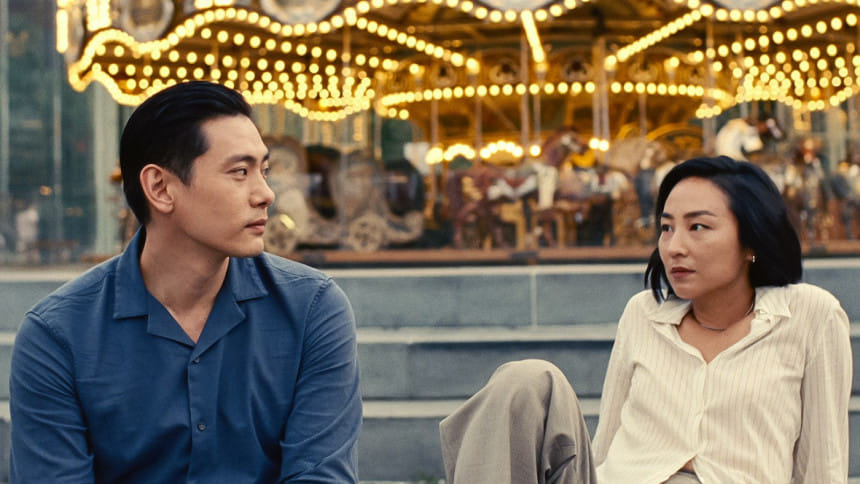Past Lives is a quietly brilliant display of yearning for love

Stories of lost love and longing are perhaps some of my favourite in film. Movies by Wong Kar-wai capture an essence of yearning unfulfilled that is nearly impossible for many other filmmakers to grasp. And yet, with Past Lives, writer and director Celine Song has managed to do just that – providing a story that is as quiet as it is potently emotional.
In short, Past Lives revolves around the lives of two characters, Nora Young and Hae Sung, over a span of 24 years. We get to see them grow up almost in real-time – from occasionally bickering 12-year-olds to young almost-lovers connected only through the stuttering internet of the 2000s to growing apart and growing old, and the eventuality that it leads to.
There is no significant climax to the story. The emotions the characters have to battle are tender, and in no way does the film attempt to exaggerate the feelings at play, leading to interactions between the characters to feel organic.
The cinematography of the film also works greatly to amplify this effect. The camera has a tendency to always peek into these characters' lives from a distance – turning the viewer into a fly on the wall, spying on the lives of these people. We are exposed to the beauty inside their lives, and the sorrow too. Everything regarding the technical aspects of the film, including the colour grading and the hazy noise of the film grains all create a nostalgic effect as if we are looking at someone's life as it drifts by.
We stumble into their lives at three distinct periods the way they stumble into each others', and from there, we see their lives play out. There is something spellbinding about the way every frame looks in this film. The score is used sparingly. Utilised primarily for ambience, it sets the tone without standing out in any way. So much of the technical brilliance of the movie shines not because of its individuality, but because of how well they blend until they become invisible.
There is very little to comment on in regards to the story. It is evident that the story is personal to the writer and director by how it has been written, but a quick look into the background of the film reveals it to also be broadly autobiographical. In many ways, this real-life inspiration makes sense for the characterisation of Hae Sung and Nora given their tendency to always act in ways that can be deemed "irrational" but are perfectly humane responses to the overwhelming emotions both characters are having to process. The flow of their conversation, and the frequently present motif of Inyeon – the red string of fate – all create layers upon layers of pained desire these characters seem to feel towards each other.
And yet, love does not mean consummation, and not all stories end in emotional satisfaction. The movie lingers on in this idea and even goes so far as to suggest a hopeful reunion in another life. But for now, this messy life formed by the choices we make is all we have. And the movie quietly accepts it in a rather profound, and quiet ending.

 For all latest news, follow The Daily Star's Google News channel.
For all latest news, follow The Daily Star's Google News channel. 









Comments